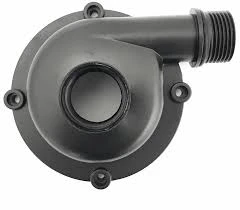Mobile:+86-311-808-126-83
Email:info@ydcastings.com
aluminium die casting companies
The Rise of Aluminium Die Casting Companies
Aluminium die casting is a manufacturing process that plays a pivotal role in various industries, including automotive, aerospace, and consumer electronics. The global demand for lightweight, durable, and corrosion-resistant components has spurred the growth of aluminium die casting companies. These firms specialize in creating intricate parts that are both reliable and cost-effective, making them an essential part of the supply chain for manufacturers worldwide.
Aluminium die casting involves forcing molten aluminium into a mold under high pressure. This process allows for the production of complex shapes with excellent dimensional accuracy and a smooth surface finish. The versatility and efficiency of aluminium die casting make it ideal for mass production, which is a significant advantage in today’s fast-paced manufacturing environment.
One of the key factors contributing to the popularity of aluminium die casting is the metal’s lightweight nature, which is advantageous for sectors such as automotive and aerospace, where weight reduction is critical for fuel efficiency. By replacing heavier materials like steel with aluminium, manufacturers can produce lighter vehicles that consume less fuel and emit fewer greenhouse gases. Furthermore, aluminium components are highly recyclable, adding to their sustainability credentials.
aluminium die casting companies

As the automotive industry pivots towards electric vehicles (EVs), aluminium die casting companies are uniquely positioned to capitalize on this shift. EVs often require lightweight components to enhance battery efficiency, and aluminium die casting can supply these necessities in a cost-effective manner. As a result, many die casting companies are investing in innovative technologies to meet the demands of the evolving market.
Moreover, advancements in die casting technology, such as the use of robotics and automation, have further improved production efficiency. Companies are increasingly adopting these technologies to streamline operations, reduce labour costs, and enhance safety. Automation also enables the consistent quality and speed necessary for modern manufacturing demands.
However, aluminium die casting companies are not without their challenges. Issues such as fluctuating aluminium prices, the need for skilled labour, and compliance with environmental regulations require strategic planning and adaptation. Companies must find ways to mitigate these risks while still delivering high-quality products to their customers.
In conclusion, aluminium die casting companies are playing an integral role in modern manufacturing by providing lightweight, durable components across various sectors. The industry's growth is fueled by technological advancements and shifting market demands, particularly in the automotive sector. As sustainability becomes increasingly important, these companies will need to adapt to the changing landscape while continuing to innovate in their processes and technologies. The future of aluminium die casting looks promising, with endless possibilities for growth and development in the coming years.
-
Understanding Metal Casting TechniquesNewsApr.02,2025
-
Understanding Exhaust Manifolds for Enhanced Engine PerformanceNewsApr.02,2025
-
The World of Metal FabricationNewsApr.02,2025
-
Key Components for Pump and Turbo EfficiencyNewsApr.02,2025
-
Essential Tools for Automotive Maintenance and RepairNewsApr.02,2025
-
Durable Valve Components for Effective Water ManagementNewsApr.02,2025











